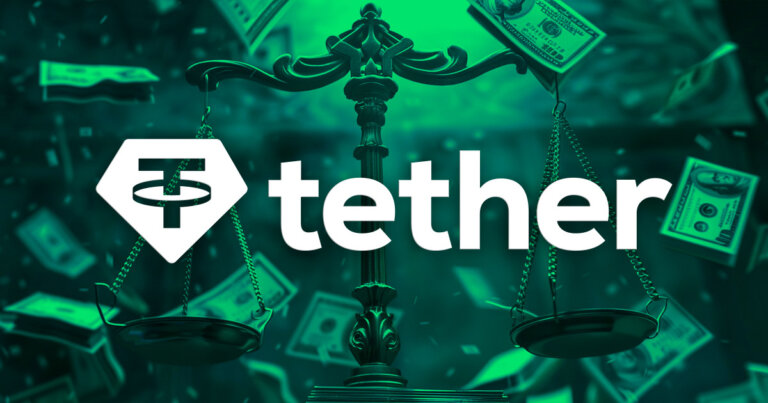 Tether CEO implies Circle director misled Congress in ‘desperation’ attack on USDT
Tether CEO implies Circle director misled Congress in ‘desperation’ attack on USDT Tether CEO implies Circle director misled Congress in ‘desperation’ attack on USDT
Further, JPMorgan analysts argued that US authorities can exert some control on Tether’s offshore usage via OFAC.

Cover art/illustration via CryptoSlate. Image includes combined content which may include AI-generated content.
Stablecoin issuers Tether told CryptoSlate in a Feb. 16 statement that it is actively averting the misuse of stablecoin technology by working with global law enforcement agencies.
The remarks followed comments by Caroline Hill, Senior Director of Global Policy and Regulatory Strategy at Circle, during a House Financial Services Committee hearing titled ‘Crypto Crime in Context Part ll: Examining Approaches to Combat Illicit Activity,’ urging the authorities to scrutinize Tether’s alleged involvement in terror financing.
Hill seemingly attacked stablecoin competitor Tether directly in response to Congressman Wiley Nickel of North Carolina’s questions on Tether, stating,
“I hope they [the Treasury Department] are looking at this seriously, given Tether’s reputation, as well as the data we’ve seen, that they are contributing to terror financing,”
Speaking on this, Tether CEO Paolo Ardoino said:
“Misleading Congress is a shocking act of desperation and those who do so should be ashamed of themselves. Spouting lies and running in Circles never gets you anywhere.”
Ardoino continued that his company has done more than anyone else to combat illicit crypto activities and remains fully committed to continuing the fight.
US regulators can ‘exert control’ over Tether, JPMorgan says
JPMorgan analysts said American regulatory bodies, particularly the Office of Foreign Assets Control (OFAC), ‘exert control’ over Tether’s offshore usage.
The analysts cited OFAC’s sanction on Tornado Cash, a crypto-mixer operating on the Ethereum blockchain, as an example of such controls. In 2022, OFAC sanctioned the protocol for facilitating money laundering, forcing Tether to freeze assets in the wallets subject to the sanctions.
Tether told CryptoSlate that it “follows Treasury OFAC sanctions” and collaborates with law enforcement agencies across several jurisdictions.
“We follow Treasury OFAC SDN sanctions and work with law enforcement agencies in 19 jurisdictions globally, including working directly with the US DOJ and US Secret Service,” Ardoino said.
Analysts further predicted that the impending stablecoin regulations would reduce Tether’s attractiveness due to its perceived lack of transparency and compliance with KYC/AML standards. This scrutiny could be extended to DeFi sector, where the USDT serves as collateral and liquidity for several protocols.
In addition, the analysts argued that Tether’s current disclosures are insufficient to ease concerns, highlighting S&P Global’s weak rating regarding its ability to maintain its peg to the US dollar.
Last month, the Wall Street giant criticized Tether’s dominance in the crypto sector, drawing the ire of Ardoino, who denounced the bank’s perceived double standards.



























































































































